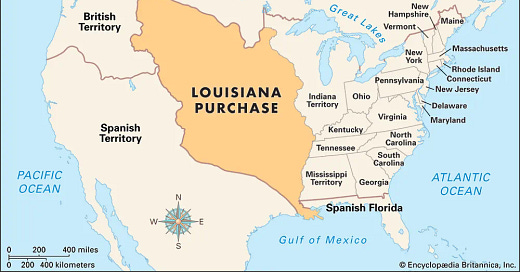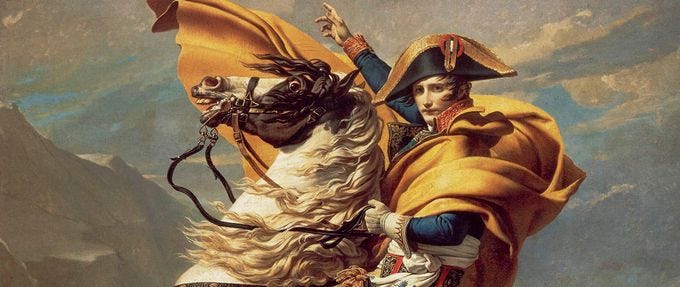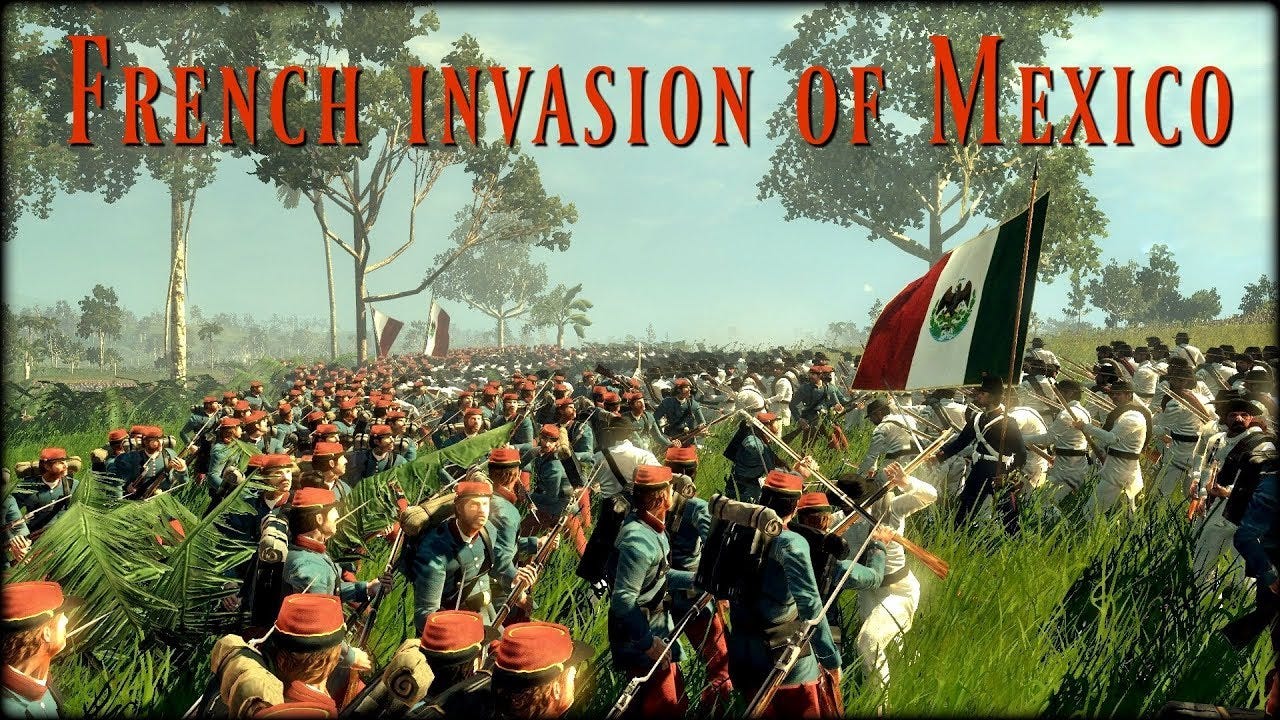Effects in the Americas from Napoleon’s Rise
Napoleon has had a profound effect on the Americas one that is now forgotten
Most Americans learn very little about Napoleon, extremely little. In fact, most Americans do not know that there were two different leaders of France named Napoleon. We know he was short (which is turns out is probably not true) and starred in some Abba record. And French, we remember he was French.
The first Napoleon I, Napoleon Bonaparte, ruled France from 1799 to 1804 as the defacto leader of the French Republic and from 1804 to 1815 as Emperor of France. Louis Napoleon, Napoleon III ruled from 1852 to 1879 as President, then Emperor. At first glance, this makes sense that Americans don’t know anything. But it turns out Napoleon changed the face of the Americas in a more lasting way than Europe.
How did Napoleon’s Rule change the United States?
If most Americans learn anything about Napoleon in school, it is in context of the Louisiana Purchase. In 1803 Napoleon sold the Louisiana Territory to the United State. This sale was critical to France in order to raise money to fight the British. Before the transfer, the Louisiana territory also sapped the energy of the French forces already stretched thin.
The military forces were under strain with war in Europe. A revolution in Haiti (then called Saint-Domingue) reduced French power in the region and spurred France to abandon most North American and Caribbean colonies.
The primary impact was the doubling of America’s territories when Napoleon sold the Louisiana Territory to the United States. The sale also led to America declaring neutrality in the French and British wars. (We saw in a previous post about the War of 1812 how that neutrality was breached.)
For many Americans and American politicians this sale furthered the idea of American Manifest Destiny, God’s approved plan that justified American expansion to the Pacific. It was an idea first put forward by the Puritan settlers and later embraced by most Americans until California came under American control.
In Florida in 1820, Spain was embroiled against France European Wars. To raise money the Spanish sold Florida to the United States. Money, garrisons in Florida, and funds could all be used to better results in the wars against France and Napoleon.
How did Napoleon’s rule effect (Spanish) Latin America?
The most important effect of Napoleon’s rule on the Americas grew out of the Napoleon’s Iberian conquests in the “Peninsula War”, from 1808 -1809, with guerrilla action through 1814. Without going into the causes or details of this conflict, suffice it to say that Napoleon fought and defeated Portugal and Spain despite British support. After Portugal was defeated, the French military and diplomatic forces in Spain disrupted Spanish politics. France took effective control of the government. Napoleon appointed his brother, Joseph Bonaparte, as Spain’s new monarch. France controlled most of Spain and Portugal from 1809 until 1814.
Before the war between France and Spain, there low level conflicts of independence in Spanish South America. They were conducted between “royalist” loyal to the Spanish crown and the locals fighting for Independence. Spain sought to keep the colonies in check through military control combined with limited self-rule. However, during the Iberian War the military was needed in Spain proper. They left the colonies with minimal military and governance.
This equilibrium changed after Napoleon conquered Spain and put Joseph Bonaparte on the Spanish Throne. With Spain defeated by France, the royalist joined with the independence movement. The monarchy they were loyal to had ceased to exist. Independence was considered vastly more desirable that to be ruled from the new French government. Between 1810 and 1821 Spanish colonies from Mexico in the north to Argentina in the south gained independence. Spain was liberated from Napoleon in 1815, but the Spanish military was stilled needed in Europe. Because Spain was unable to effectively fight independence movements, most colonies quickly rebelled.
How did Napoleon’s rule effect (Portuguese) Latin America?
The first objective to the Peninsula War was for Napoleon to conquer Portugal. Portugal traded with the British, even though they were technically neutral in the British - Napoleonic Wars. When Napoleon first invaded Portugal in 1807, the Portuguese understood they would lose. The Portuguese royal family fled to Brazil in 1808 and stayed until 1821. When the King returned to Portugal he left his son, Dom Pedro in Brazil. In 1822, the son proclaimed independence for Brazil and became its first emperor. His son became emperor in 1831 as Pedro II. He was overthrown in 1889 and Brazil was declared a Republic.
Napoleon III - Failure in Mexico
Sadly many Americans do not know there is a difference between Napoleon I (Bonaparte) and Napoleon III (Louis). Even more sad? I was one of those people until I researched this.
Napoleon III, Louis Napoleon, is the more famous Frenchman for many Americans. Many border states (including California) learn in school about “Napoleon’s” bid to install a French Monarch in Mexico. France, along with Britain and Spain, first launched an expedition to force Mexico pay its foreign debts. Britain and Spain withdrew when France proceeded to march further into Mexico. The French forces had a difficult, albeit ultimately successful, march to Mexico City.
Napoleon III installed his cousin, Maximillian on the newly created Mexican throne in 1864. His victory was supported by Confederate soldiers fleeing the Civil War. This had the effect of the United States being one of the few countries that backed the Mexican Republic forces.
Napoleon’s military and support for the Maximillian dwindled as French forces were withdraw starting in 1866 to protect France proper.
In 1867, then Mexican Republican forces retook the country, although Maximillian continued to reside in the country until his death. He had introduced a lot of popular measures during his brief reign, and successful Mexican forces did not kill or banish Maximillian or his wife.
One last aside – We have Napoleon III to thank for Cinco de Mayo. The 5th of May is not Mexican Independence Day. Nor was it intended as a random day of Tequila fueled revelry. It was on the 5th of May in 1862 that the Mexican resistance forces won their first victory against the French invaders. And since it was a lot of American history books without context, we all thought it was Mexico’s 4th of July.





